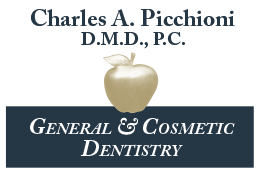Why Good Dental Health is Important
In recent years, bacterial inflammation involved in gum disease has been linked to chronic health problems like stroke, coronary artery disease, and premature low birth weight babies. Our doctors and hygienists take great care to identify and treat gum disease early to keep you and your mouth healthy.
Tooth Decay
Caries, or tooth decay, is a preventable disease. While caries might not endanger your life, they may negatively impact your quality of life.
When your teeth and gums are consistently exposed to large amounts of starches and sugars, acids may form that begin to eat away at tooth enamel. Carbohydrate-rich foods such as candy, cookies, soft drinks and even fruit juices leave deposits on your teeth. Those deposits bond with the bacteria that normally survive in your mouth and form plaque. The combination of deposits and plaque forms acids that can damage the mineral structure of teeth, with tooth decay resulting.
Sensitive Teeth
Your teeth expand and contract in reaction to changes in temperature. Hot and cold food and beverages can cause pain or irritation to people with sensitive teeth. Over time, tooth enamel can be worn down, gums may recede or teeth may develop microscopic cracks, exposing the interior of the tooth and irritating nerve endings. Just breathing cold air can be painful for those with extremely sensitive teeth.
Gum Disease
Gum, or periodontal, disease can cause inflammation, tooth loss and bone damage. Gum disease begins with a sticky film of bacteria called plaque. Gums in the early stage of disease, or gingivitis, can bleed easily and become red and swollen. As the disease progresses to periodontitis, teeth may fall out or need to be removed by a dentist. Gum disease is highly preventable and can usually be avoided by daily brushing and flossing. One indicator of gum disease is consistent bad breath or a bad taste in the mouth.
Periodontics
Periodontal simply means "the tissue around the teeth." Periodontists specialize in the treatment and surgery of this area, which is often characterized by gum disease. Plaque is the most common element causing gum disease.
Unfortunately, periodontal-related problems are often discovered after they have persisted for an extended period of time. Proper oral hygiene, daily dental care and regular dental check-ups will minimize the risk of gum disease. Gum disease ranges from mild (gingivitis) to moderate (periodontitis) to the severe (periodontitis). Treatments are available for every case of gum disease.
Common problems associated with gum disease:
- "Long" teeth (receding gum lines expose the root portions of your teeth)
- Discolored or deteriorating tooth structure
- Gum depressions (holes in between the teeth in the gum tissue)
- Infected gum line (discoloration or inflammation of the gum tissue)
- Tooth loss or tooth movement
The effects of gum disease can be damaging to your dental health. However, through proper preventive care and oral hygiene, you can avoid problems associated with gum disease.
Bad Breath (Halitosis)
Daily brushing and flossing helps to prevent the buildup of food particles, plaque and bacteria in your mouth. Food particles left in the mouth deteriorate and cause bad breath. While certain foods, such as garlic or anchovies, may create temporary bad breath, consistent bad breath may be a sign of gum disease or another dental problem.
Canker Sores
Canker sores (aphthous ulcers) are small sores inside the mouth that often recur. Generally lasting one or two weeks, the duration of canker sores can be reduced by the use of antimicrobial mouthwashes or topical agents. The canker sore has a white or gray base surrounded by a red border.
Orthodontic Problems
A bite that does not meet properly (a malocclusion) can be inherited, or some types may be acquired. Some causes of malocclusion include missing or extra teeth, crowded teeth or misaligned jaws. Accidents or developmental issues, such as finger or thumb sucking over an extended period of time, may cause malocclusions.

